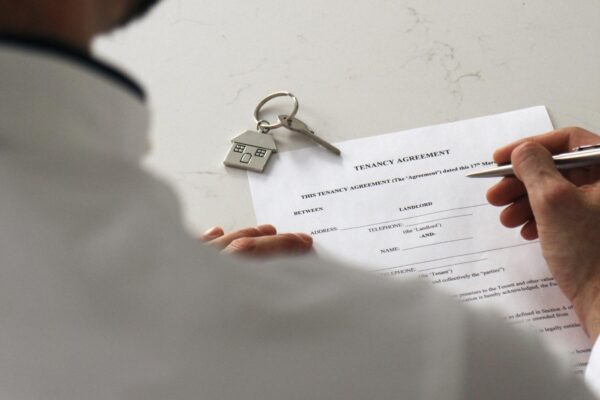Renting can pose challenges from time to time, and it’s no secret that misunderstandings with tenants may manifest.
Being a landlord can be financially rewarding, yet it is not without its challenges, and navigating disputes is a significant aspect
As a landlord, it’s important to be equipped with the knowledge and strategies to address common issues that may arise between you and your tenants.
In this blog post, we’ll explore five common rental disputes and provide practical solutions to help you resolve them quickly and effectively.
- Late or non-payment of rent
- Disputes regarding rent increases
- Tenancy deposit deductions
- Maintenance and repairs
- Keeping a pet without permission
More than a million properties have been let on OpenRent – why not yours too?
Create Your Advert Today1. Late or non-payment of rent
One of the most prevalent issues landlords face is late rent payments. To address this, establish clear rent payment expectations from the beginning.
Make sure the terms are outlined in the lease agreement, including due dates, and acceptable payment methods.
If a tenant consistently pays late, consider open communication to understand the root cause, and be flexible where possible. Life happens, and sometimes a little understanding goes a long way in keeping the harmony – especially if you haven’t encountered problems with your tenant before.
For that extra peace of mind, consider exploring rent guarantee insurance. It’s like a safety net, protecting you from unexpected twists and giving you the confidence that your rental income is always there to cover your mortgage and other costs.
2. Disputes regarding rent increases
Rent hikes can be a bit touchy, especially with the current cost of living crisis, but keeping things upfront is the way to go.
Make sure to clearly communicate any adjustments well in advance. This not only gives you room for negotiations but also allows tenants sufficient time to think over the decision.
Other things you must consider are what kind of tenancy you have going, whether there’s a rent review clause, and if your tenants agree.
For additional guidance on handling rent increases, including how often you can propose one, don’t forget to read our comprehensive guide here.
You might also be interested in…
- All You Need to Know About Right to Rent Checks
- Guide to the Renters’ Rights Bill for Landlords 2025
- What Are the EPC Requirements for Landlords?
- Renting to Students: Guarantors, Advance Payments, HMO licence and more
- Holding Deposit, Tenancy Deposit, Rental Fees: Everything You Need to Know
3. Tenancy deposit deductions
Issues around tenancy deposits often come down to the deductions made when the tenancy ends.
To avoid problems and cover yourself for any damage during the tenancy, it’s important to carry out a detailed inventory before new tenants move in.
Since all deposits must be registered with a government-approved scheme, tenants can challenge any deductions. Without a thorough inventory, your chances of making a successful claim are slim.
Keep in mind that wear and tear on the property over time is normal, so try to be fair when making deductions.
4. Maintenance and repairs
One common issue in rentals is figuring out who’s in charge of repairs and maintenance: the landlord or the tenant.
The lease agreement conveniently outlines each party’s obligations concerning routine upkeep.
However, even the most careful tenants will cause some wear and tear, and occasional mishaps may occur.
That’s why you need to remember this golden rule: landlords are responsible for repairs and replacements, while tenants are in charge of maintaining the property and its furnishings.
Of course, there might be a few exceptions, like if a tenant intentionally or negligently damages something.
Invest in a thorough inventory to shield yourself against potential damages during the tenancy.
Explore Our Pricing5. Keeping a pet without permission
Many tenants consider their pets as part of the family, while landlords may have concerns about potential damage or disruption caused by animals.
Landlords aiming to keep their properties pet-free often include a ‘no pets’ clause in the tenancy agreement, explicitly forbidding tenants from keeping any animals.
In cases where a pet causes nuisance to other residents or significant damage to the property, you may be able to evict the tenant using a Section 8 notice.
However, if your tenants demonstrate responsible behaviour and maintain the property well, eviction might not be in your best interest.
It’s a good idea to talk to your tenants first and try to find a solution together before resorting to legal action.
In the world of property management, skillfully managing disputes with your tenants marks true professionalism.
By prioritising clear communication and maintaining a proactive mindset, you will be able to confidently navigate challenges of any nature.
It’s not just about overcoming obstacles; it’s about fostering a positive environment that ensures success for both you and your tenants.



